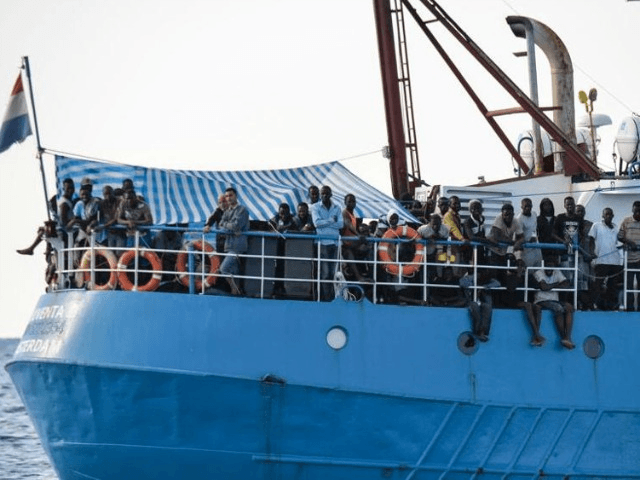Libyan Field Marshal Khalifa Hifter ordered his naval forces to confront foreign ships entering Libyan waters without military permission. The ships most likely to be confronted are Italian boats sent at the request of Libya’s internationally-recognized civilian government to help manage the migrant crisis.
Hifter, whose name is often spelled “Haftar,” runs the largest of the armed forces claiming dominion over parts of Libya after the overthrow of Moammar Qaddafi. He gained political influence and popularity thanks to military success against the Islamic State, which at one time threatened to gobble up a fair chunk of Libya.
He is not on board with the Government of National Accord supported by the international community, which in turn has not been enthusiastic about naming Hifter supreme commander of the Libyan government’s armed forces, as he demands. He insists on referring to his troops as Libya’s national army, to the great annoyance of the GNA.
Hifter and Prime Minister Fayez Serraj agreed to cooperate after a meeting in Paris last week, but no sooner had the Italian parliament approved the Serraj administration’s request for naval assistance to reduce the flow of migrants across the Mediterranean than Hifter issued his public decree to intercept all such vessels. A grand total of one Italian patrol boat made it to Tripoli before the order was issued.
Italy announced its joint operation with the Libyan government last week, saying it planned to send a total of six ships, but the scope of the mission was reduced when the Libyan government apparently decided six Italian ships were too many.
Italian Defense Minister Roberta Pinotti said Italy was willing to “provide logistical, technical and operational support for Libyan naval vessels, helping them and supporting them in shared and coordinated actions,” and offered reassurances that Libyan sovereignty would not be compromised or insulted by Italy’s help.
Someone in Tripoli responded by hanging up a poster of a hero from Libyan resistance to Italian rule in the 1920s with the slogan, “No to a return to colonization.”
One of Libya’s other governments, the eastern parliament aligned with Hifter politically, worried that Italy was planning to dump “tens of thousands of illegal immigrants” back in Libya. This parliament denounced the Italian plan as a “violation of the sovereignty of Libya,” and even had the cheek to accuse Italy of trying to “export the illegal migration crisis” by returning migrants who had previously set sail from the Libyan coast.
The migrants in question are mostly Africans from outside Libya and Italy has been overwhelmed with about 600,000 of them over the past four years, creating a crisis that is said to top the voters’ list of priorities in next year’s elections. Even as various governments and warlords in Libya were complaining about the oppressive presence of six Italian ships off their cost, opposition leaders in Italy were accusing their own government of taking only meaningless symbolic gestures to hold back the migrant tide.
Offering a final indignity, Prime Minister Serraj denied “having asked Italy to send naval vessels into Libya’s territorial waters,” said allegations to the contrary “are without any foundation,” and declared “Libya’s national sovereignty is a red line that nobody must cross.”
Italy continued doing what it can to slow the migrant wave outside of Libyan waters on Thursday, seizing a refugee ship operated by a German charity after a lengthy investigation into contacts between charity volunteers and Libyan smugglers. The ship was allegedly rendezvousing with smugglers and taking aboard refugees who the charity claimed to have rescued at sea. Italian authorities have been investigating numerous claims that charity organizations are colluding with smugglers to bring migrants across the Mediterranean.

COMMENTS
Please let us know if you're having issues with commenting.